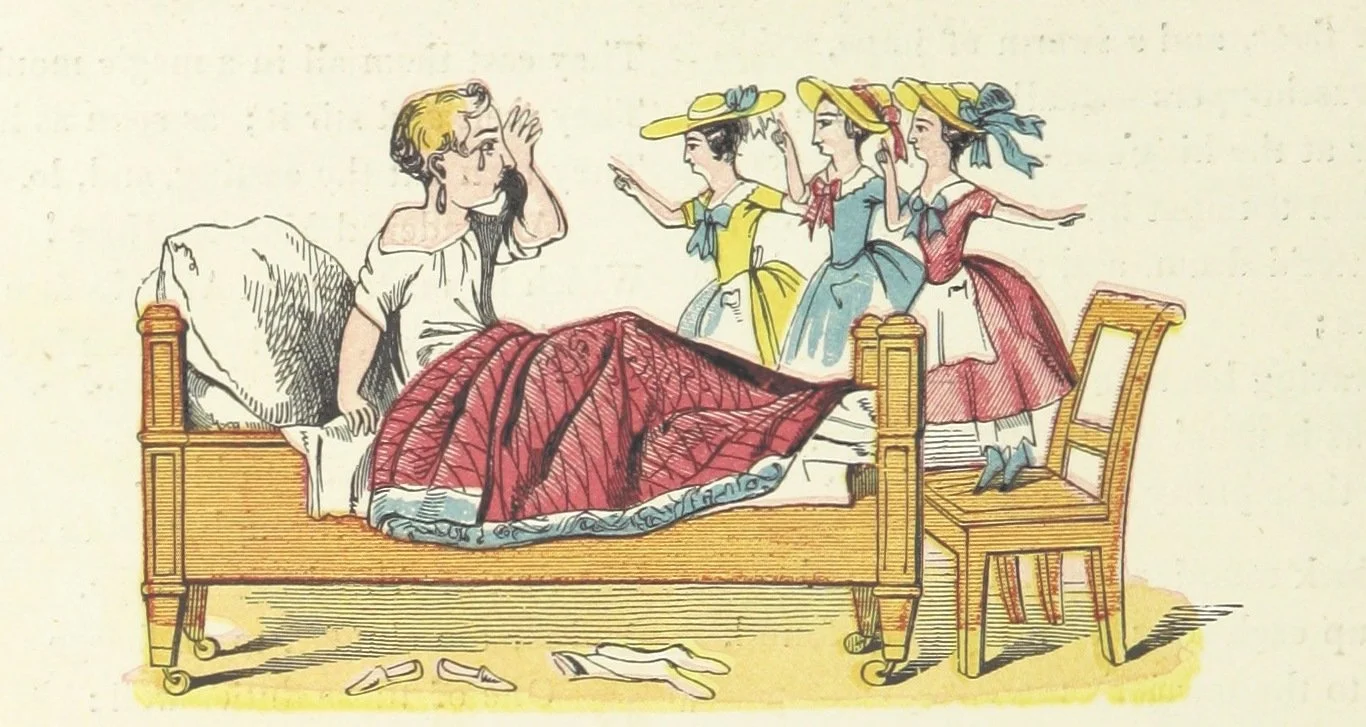Now, later, and someday
Action shot of me being tormented by what could be, what should be, and what could have been. (British Library)
My first experience with procrastination and the terrible feelings it brings was in fourth grade. I was supposed to do a report on Leonardo da Vinci.
I don’t remember whether it was that night or the next morning when I suddenly remembered that I had this project to do, and panicked.
My mom let me stay home to complete the project with the understanding that this would be the last and only time I’d be allowed to do that.
And it was. I learned my lesson, sort of. I started to keep better track of my assignments and was able to meet most of the deadlines I faced over the next decade or so.
But then, once I left school and was released into the wild, I was less successful.
I was now responsible for not just meeting deadlines, but setting them. That went poorly. I was forever submitting invoices late, calling people back late, and showing up late.
That’s not even getting into the things that I didn’t do because there were no deadlines and nobody to notice that I didn’t do them. When it was completely up to me, more often than not, the thing never happened. For instance, out of college, it never occurred to me that it was time to apply for jobs in my field.
The story of my increasing maturity is really the story of my ability to acknowledge that I’m not likely to change much between “now” and “later.” Instead of hoping that my future self will be more responsible and pay this bill, I will do it now. Instead of delegating the dishes to the me of tomorrow, I recognize that I’m unlikely to become more enthusiastic about them over the next twelve hours. Might as well do them now.
As I’ve practiced this skill of wrangling the now, I’ve learned that the work is so much easier when you don’t put it off. You won’t have to begin your email with a bunch of apologies for your three-week silence. You won’t have to spend half an hour scrubbing bread dough that’s hardened into glue. And you won’t have to pay late fees.
Best of all, you won’t have to do the work through a haze of shame and panic. You’ll feel good. These good feelings make it easier to do the work next time. You might actually seek out the work in order to experience those good feelings — a classic virtuous cycle.
That’s how I help my students to recover from procrastination. It may be that they don’t remember what life is like without a cloud of late assignments hanging over them. Experiencing that again is such a relief that they shift their behavior quickly. They realize that they aren’t the lazy piece of crap they thought they were, and that empowers them to take action.
Making the shift from “later” to “now” is important, but it’s only part of the story. The next challenge is shifting from “someday” to “now.” Otherwise, we get lost in that cycle of chasing tasks that will make us feel satisfied upon completion without challenging ourselves to do the things that are important but not urgent.
No one cares if I never write a book or a song. No one misses the business I didn’t start or the charity donation I never made. And yet, these might be the things that matter most to me — the actions that will yield a sense of accomplishment far beyond what I get from filing my taxes on time. These things that I want to do “someday” are the easiest to put off yet carry the greatest cost.
Of course, the “someday” projects are so numerous that I can’t pull them all into “now.” I’ll have to make a plan for how and when I will take care of each one. I might even have to let go of some of my “now” tasks to create space. I have to sacrifice the immediate dopamine hit of ticking a box in favor of a more meaningful, long-term benefit.
Some of my someday projects bring back the feeling I had in fourth grade: “How could I have forgotten this? What have I been doing? I can’t do this now! It’s hopeless.” But, just as I did then, I can break the project down into pieces, make a plan, and follow through. Better late than never — and better now than later or someday.





